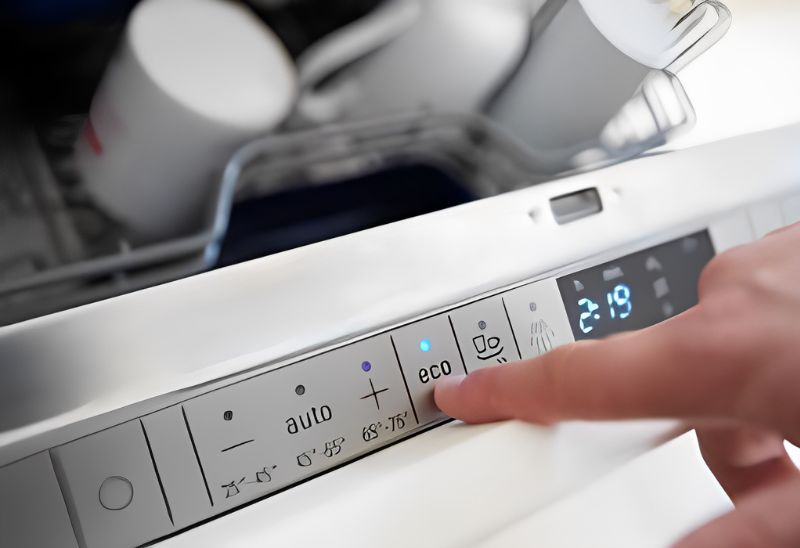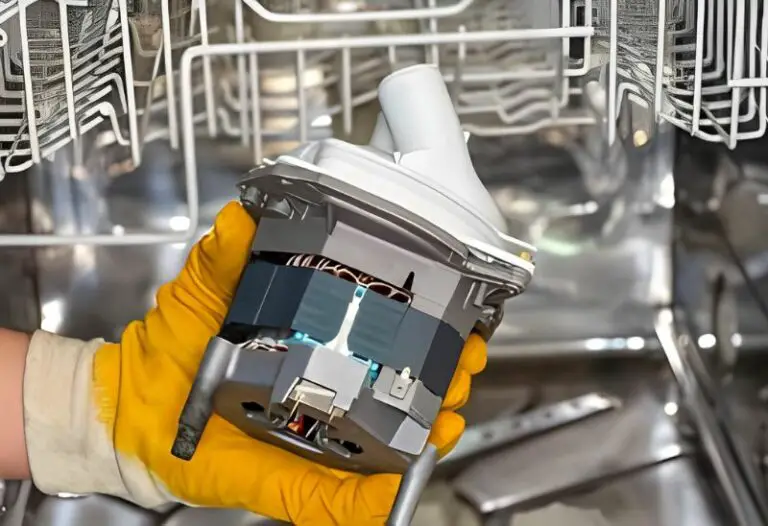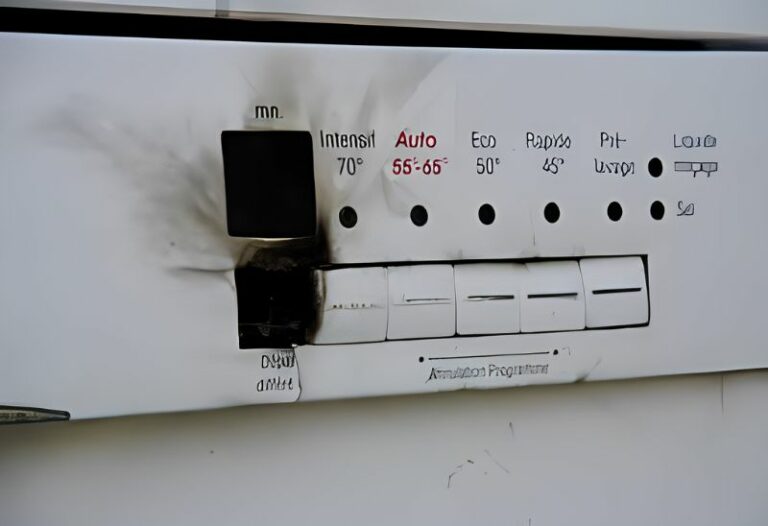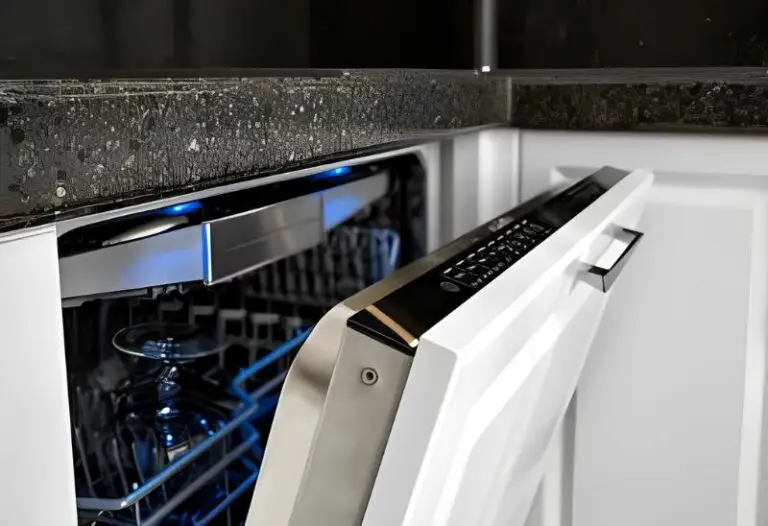You’ve just finished a delicious meal, and the kitchen is awash with dirty dishes. Now comes the question: how does your trusty dishwasher come to the rescue?
Is it powered by the same gas that heats your stove, or does it rely on electricity to banish those stubborn food stains?
In this article, we’ll dive into the heart of your kitchen’s unsung hero. You’ll discover not just what fuels its cleaning power, but also the pros and cons that could influence your next purchase.
Get ready to unravel the mystery behind the dishwasher’s energy source and make an informed decision for your home. Let’s get started!
Key Takeaways
- Dishwashers predominantly operate on electricity, not gas
- Electric power is more suitable and efficient for dishwasher operation
- Gas dishwashers are a misconception; modern dishwashers rely on electricity to run

Dishwashers: Electric Champions, Not Gas Guzzlers
Imagine a modern dishwasher: It’s most likely electric, as gas-powered dishwashers haven’t been widely available for decades. You might wonder why this transition happened. Well, one reason is that gas dishwashers had several limitations, like safety concerns and inefficient energy usage.
Electricity’s role in dishwashers
Built to impress, your dishwasher relies on electricity for crucial aspects, such as pumps, controls, and some heating components. This keeps these machines operating efficiently and effectively for you.
Hot water, the silent hero
However, the real energy consumption comes from heating water, which your dishwasher needs to get rid of stubborn food residues. Most dishwashers don’t handle this themselves. Instead, they team up with a separate gas or electric water heater to ensure a steady supply of hot water.
Understanding the energy usage of your electric dishwasher will help you evaluate its efficiency and cost-effectiveness, compared to obsolete gas-powered models. Here’s a quick summary to keep in mind:
- Modern dishwashers are almost exclusively electric
- Necessary functions, like pumps and controls, rely on electricity
- The majority of energy consumed comes from heating water (usually done by a separate gas or electric water heater)
With this knowledge, you can make more informed decisions regarding your dishwasher’s energy usage and its impact on your utility bills. Now, you can take pride in your energy-efficient appliance as it helps you contribute to a greener environment.
Debunking the Gas Dishwasher Myth
You might have heard about gas dishwashers, but it’s time to clear up some misunderstandings. In the past, early dishwashers dating back to the late 19th century indeed used gas for heating water and even for some internal mechanisms. However, gas-powered dishwashers are no longer common today. Let’s break down the reasons behind this shift in technology.
Safety concerns played a significant role in the transition from gas to electric dishwashers. Gas leaks and potential combustion hazards made gas-powered dishwashers less desirable. These risks led to electric dishwashers becoming the standard in modern kitchens.
Furthermore, gas dishwashers had limited functionality compared to electric models. They typically offered fewer features and cleaning cycles. The lack of convenience and versatility in gas models made electric dishwashers more attractive to homeowners.
Here’s a quick comparison of gas dishwashers and electric dishwashers:
| Criteria | Gas Dishwashers | Electric Dishwashers |
|---|---|---|
| Energy Source | Natural gas | Electricity |
| Safety | Gas leaks, combustion risk | Generally safer, no gas-related risks |
| Functionality | Limited features and cleaning cycles | More features and cleaning options |
| Energy Efficiency | Variable, depends on gas consumption | Greater control over electricity use |
In summary, modern dishwashers are now powered by electricity due to safety concerns and increased functionality. While gas dishwashers were once the norm, they have been largely phased out in favor of safer and more efficient electric models. So, if you’re considering a dishwasher for your kitchen, an electric one would be the ideal choice.
Electric’s Reign: Advantages and Considerations
Versatility is a major advantage of electric dishwashers. You’ll find that electric models offer a wider range of wash cycles, temperatures, and sanitation options. This allows you to choose the best settings for your specific dishware, ensuring they are cleaned thoroughly.
When it comes to efficiency, modern electric dishwashers are highly energy-efficient, consuming less power than older models. Many of them feature sensor-based washing systems that adapt to the dirtiness of your dishes, optimizing water usage and energy consumption. Look for models with the Energy Star certification to ensure you’re getting an appliance that has been tested and proven to be energy efficient.
As a 7th grade teacher would say, safety first! In that spirit, one important aspect to consider is the safety of electric dishwashers. They eliminate the risks associated with gas leaks and combustion, providing you with a sense of security while operating your kitchen appliances.
Now, let’s talk about cost. While the initial purchase price of electric dishwashers might be slightly higher than their gas counterparts, the long-term energy savings often outweigh the upfront cost. Switching to an electricity plan that offers better rates can further reduce your energy expenses.
To sum up, electric dishwashers provide advantages in versatility, efficiency, safety, and cost. Be sure to consider these factors while searching for the perfect dishwasher to meet your needs.
Beyond Electricity: Factors Affecting Dishwasher Energy Use
When you think about dishwasher energy use, it’s essential to consider factors beyond electricity. Factors such as water usage, energy consumption, heating elements, water efficiency, and cleaning performance play a crucial role in determining the overall energy efficiency of your appliance.
Water heating: Your water heater, whether it’s gas, electric, or solar-powered, has a considerable impact on your dishwasher’s energy consumption. The efficiency of your water heater can make a difference in how much energy is used to heat the water for your dishwasher.
Wash cycle selection: You can also save energy by picking water-efficient and shorter cycles. Many dishwashers now offer eco-friendly cycle options, which can help reduce both water and energy consumption significantly. By using these options, you’ll not only save on energy costs but also contribute to preserving our planet’s resources.
Loading and maintenance: Proper loading and regular cleaning of your dishwasher optimize its performance and prevent the need for energy-intensive rewashes. Taking the time to arrange your dishes correctly can result in cleaner items, requiring less water and energy usage. Additionally, maintaining your dishwasher, like cleaning the filter and checking for clogs, helps prolong its life and maintain efficiency levels.
In summary, it’s essential to consider factors like water heating, wash cycle selection, and regular maintenance to optimize the energy efficiency of your dishwasher. By keeping these aspects in mind, you can conserve energy, reduce your utility bills, and help protect our planet.
Beyond Dishwashers: Exploring Alternative Cleaning Options
When dealing with dirty dishes, you might want to consider alternative options beyond traditional dishwashers. From handwashing techniques to innovative appliances, there are several choices that can help you not only conserve water and energy but also maintain a clean and sanitary kitchen.
Handwashing: You may find that handwashing can be more energy-efficient than using older, inefficient dishwashers, particularly for smaller loads. Just remember to soak your dishes first in a basin filled with warm water and a mild dish soap to help loosen the grime, making them easier to clean. Use a scrub brush or sponge to scrub away any stubborn stains.
Water-saving dishwashers: If you want to use a dishwasher but conserve water as well, consider newer models that come with advanced water-saving features and technologies. Many of these models have the Energy Star label which signifies their efficiency in reducing water consumption.
Air drying: Another energy-saving option is to choose air drying over heat drying. By doing this, you can save energy, extend the lifespan of your dishwasher, and still get clean dishes. After the washing cycle is complete, simply open the dishwasher door slightly, allowing air to circulate and dry your dishes naturally.
In conclusion, there are several alternatives you can consider when it comes to cleaning your kitchenwares. Whether it’s handwashing, using a water-saving dishwasher, or opting for air drying, these options can help you save water, energy, and money while keeping your dishes sparkling clean. Don’t forget to use eco-friendly detergents to make your cleaning process even more environmentally friendly.
Frequently Asked Questions
How much does it typically cost to operate a dishwasher each month?
The monthly cost of operating a dishwasher varies depending on factors like your local electricity rates, the frequency of use, and the efficiency of your appliance. To estimate your monthly expense, multiply the dishwasher’s power consumption (in kilowatts) by your local electricity rate (per kilowatt-hour) and by the number of times you use the dishwasher in a month.
What is the average power consumption of a Bosch dishwasher?
Bosch dishwashers are known for their energy efficiency. On average, they consume about 1.1 to 1.6 kilowatts per hour (kWh) per cycle. This may vary depending on the specific model and the chosen washing program. Keep in mind that using energy-saving modes or running the dishwasher with a full load can help reduce power consumption.
Can you estimate the expense of running a dishwasher for a single cycle?
Sure! To estimate the cost for a single dishwasher cycle, you can multiply the unit’s power consumption (in kilowatts) by the electricity rate (per kilowatt-hour) and by the average duration of a cycle (in hours). For example, if your dishwasher uses 1.5 kWh per cycle, and the electricity rate is $0.12 per kWh, the cost for a single cycle will be approximately $0.18.
Is it normal for a dishwasher to cause an increase in the household electric bill?
Using a dishwasher can add to your household electricity bill, but the impact depends on factors like the appliance’s efficiency, usage frequency, and your local electricity rates. However, compared to washing dishes manually, a dishwasher may save you time and water, making it a more economical choice in many cases.
Do dishwashers use an external hot water source, or do they heat water internally?
Dishwashers typically have built-in water heaters to heat the water internally. However, they may also be connected to your home’s hot water supply, which could be heated by a gas or electric water heater. When connected to an external hot water source, a dishwasher may use less energy for heating purposes.
Are modern dishwashers equipped with gas connections for heating purposes?
No, dishwashers are designed to function on electricity and do not have gas connections for heating. While they may use electricity to heat water internally, the hot water supplied by an external source like a water heater might be powered by gas. This does not mean that the dishwasher itself operates on gas, but rather its external hot water supply might be gas-powered.





